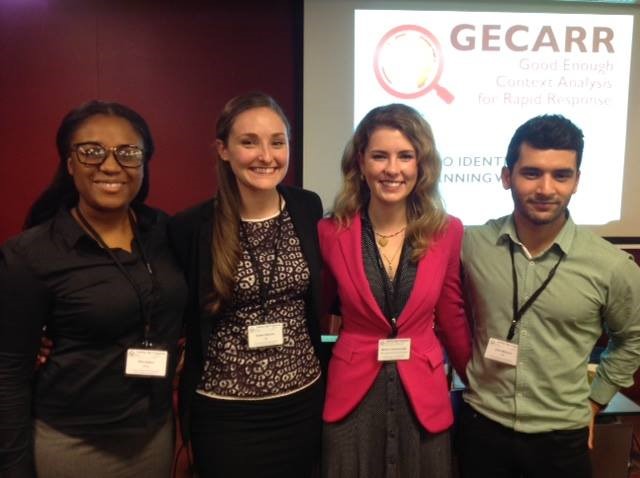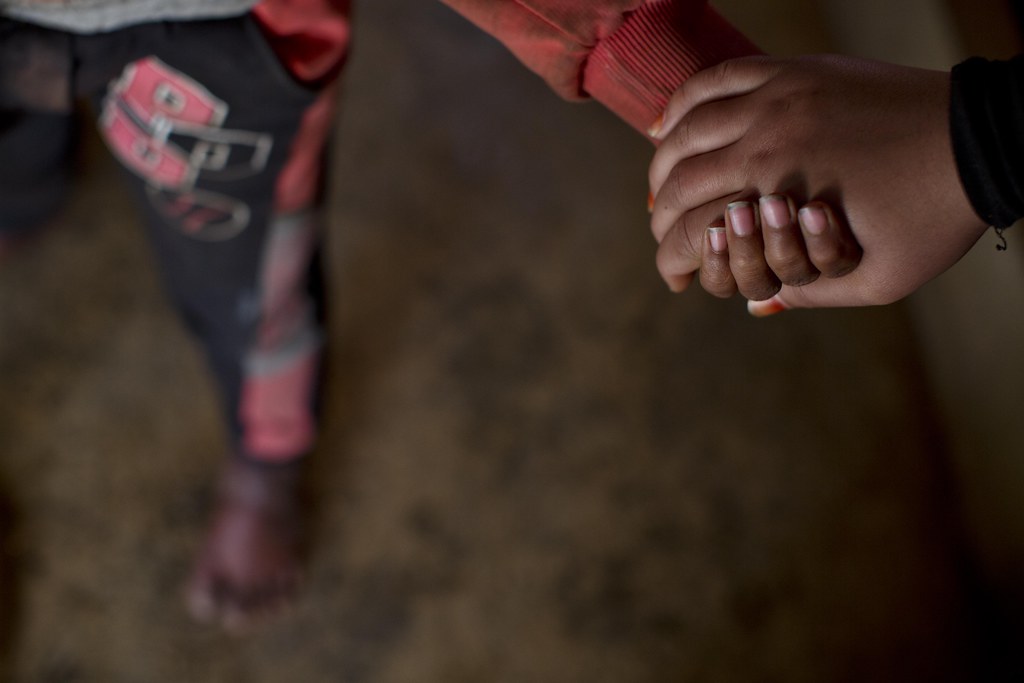As a part of the MSc in Development Management program, students complete a consultancy project working with a broad range of clients in the development sector. Students Imogen Outlaw, Sofia Kellogg, and Audrey Jones reflect on their experience working with the Fairtrade Foundation to explore the degree to which farm management information systems are accessible to small farming organisations in the Global South.
As part of the MSc in Development Management programme, students work in small teams to lead a consultancy project. Our team consisted of four members with varying academic and professional backgrounds. For many of us, the unique opportunity to gain firsthand experience with professionals in the development sector was a key reason we applied to the programme. The consultancy project was a fruitful learning experience that challenged us to apply our theoretical knowledge and previous work experience to a tangible output.
Our team had the pleasure of working with the Fairtrade Foundation, a leader in promoting fairer trading conditions and sustainable livelihoods for smallholder farmers and agriculture workers in global agriculture value chains. Throughout the six-month project, we built a productive and personal relationship with our client, which aided us in developing the scope and final output of the project.
While the initial project was focused more broadly on multiple aspects of agricultural technology, through speculative research and in-depth discussions with our client we collaboratively narrowed down the scope of the project and ultimately focused on the accessibility of farm management information systems (FMIS). We were tasked with analyzing the degree to which FMIS solutions are accessible and adaptable to the needs and constraints of small farming organizations in the Global South. Our research was shaped by the questions:
What makes a data solution “farmer centric”?
Do current FMIS solutions take into account the needs and constraints of small farming organizations?
To address these questions, we completed an extensive literature review of FMIS solutions to understand what features an FMIS entailed, why they were considered necessary or beneficial for farmers, and what challenges farmers had in implementing the systems. We additionally completed a review of the human-centered design literature to further understand what it meant to create technology with the users’ needs and constraints in mind. To supplement our desk-based research, we conducted thirteen interviews with a range of actors across the FMIS sector – including leading academics, tech-centered NGOs, and data technology companies. Ultimately, we used our desk-based research and interview data to inform the creation of an index that measured the degree to which an FMIS was accessible to small farming organizations. The index was used to measure 55 commercial FMIS solutions which were found through manual online searches of available solutions.
The main conclusion from our consultancy project is that a research divide exists in which most research on FMIS solutions focuses on technology used by large farmers in the Global North. There was little literature that engaged with the role of FMIS solutions for small farming organizations located in the Global South. Our findings indicated that many technology developers and researchers have not meaningfully considered the differing constraints of small farming organizations and farms located in the Global South. The research divide suggests a need for targeted research on agricultural technology used by small farming organizations in the Global South.
Access to technology and data is recognized by the UN as a key input into the future of sustainable development and beneficial for informed decision-making. The benefits of technology and data need to be extended to small farming organizations in the Global South by considering their unique capacities and constraints. Additionally, small farming organizations, and users more generally, need to be included in the design of technology to create applications that fit their actual needs and constraints. The findings of our report are in line with larger conversations occurring within the development sector regarding the importance of inclusivity of diverse perspectives in project and product design. Whether the developer is a non-profit or a private firm, it is paramount for it to include users in the design process.
In April 2020, we completed our consultancy report and presented it to our client. The research and index we created will contribute to further discussions and projects within the Fairtrade Foundation that aim to assess the accessibility of agricultural technology for small farming organizations. We are very grateful for the support provided by the Fairtrade Foundation and the LSE to aid us throughout the project.
Our Tips for a Successful Consultancy Project:
My biggest tip on the project would be to work to get to know your team members! It makes the project more enjoyable and collaborative, opening the space for better dialogue and ultimately creating a more rewarding experience for you and your company. – Audrey
Team bonding sessions are so important! The reason our team was able to work so well together is because we were able to communicate effectively. Get to know your team over a cup of coffee or beer at the pub 🙂 We also each led a different part of the project. For example, I was in charge of organizing all of the interviews we conducted. Audrey and Imogen were in charge of the literature reviews and Sam took charge of the index. This made the project a lot easier to manage. – Sofia
The biggest aspect of a successful consultancy project is open and respectful communication – which comes from getting to know your teammates. Our group was intentional about taking time at the beginning and end of meetings to just chat and get to know each other outside of school. Our positive and open team dynamic allowed us to support each other throughout the project and to give honest feedback which benefited our final output. – Imogen





